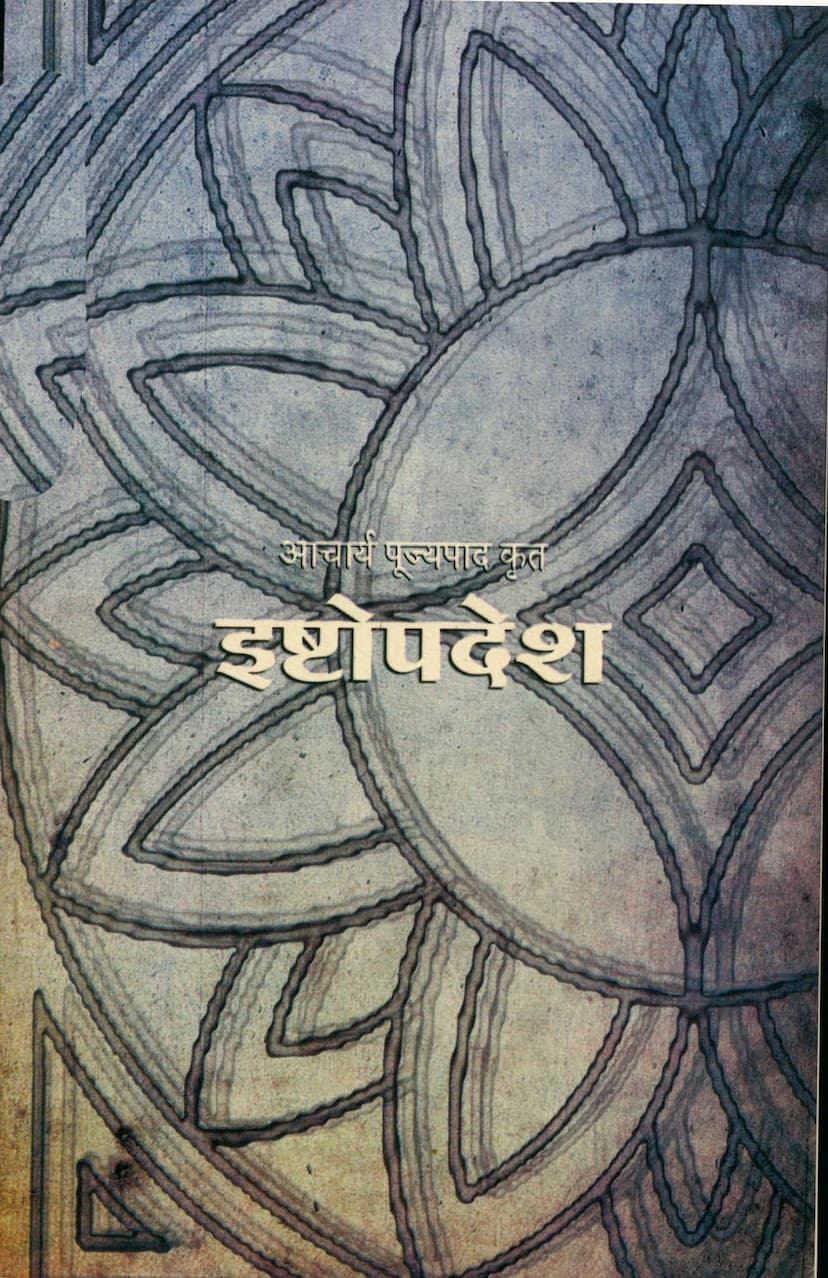Ishtopadesh
Added to library: September 1, 2025

Summary
Here's a comprehensive summary of the Jain text "Ishtopadesh" by Acarya Pujyapada, based on the provided information:
Book Title: Ishtopadesh (इष्टोपदेश) Author: Acarya Pujyapada (आचार्य पूज्यपाद) Translator: Dr. Jaykumar Jalaj (डॉ. जयकुमार जलज) Editor: Manish Modi (मनीष मोदी) Publisher: Hindi Granth Karyalay, Mumbai Series: Pandit Nathuram Premi Research Series, Volume 14 Publication Year: 2007
Overview:
"Ishtopadesh," meaning "Instruction for the Desired Goal" or "Essential Teachings," is a concise and profound work by the renowned Jain philosopher and scholar, Acarya Pujyapada. This particular edition is a Hindi translation by Dr. Jaykumar Jalaj and edited by Manish Modi, published by Hindi Granth Karyalay as part of their esteemed Pandit Nathuram Premi Research Series.
Acarya Pujyapada's Life and Context:
The introductory pages provide biographical information about Acarya Pujyapada, also known as Devanandi and Jinendrabuddhi. Born in the 5th century in Karnataka, India, he was a prolific writer whose works spanned various fields including grammar, prosody, and medicine. His influence from earlier Jain luminaries like Kundakunda and Samantabhadra is evident in his writings. Key works mentioned include "Jinendra Vyakaran," "Sarvarthasiddhi," "Ishtopadesh," and "Samadhitantra."
Core Teachings of Ishtopadesh:
The text, comprising 51 verses (shlokas), is described as a tender and insightful guide that draws the reader's attention to the fundamental spiritual needs of life. Acarya Pujyapada's central message revolves around discernment between the self (svabhava) and the non-self (parabhava), and the essential versus the non-essential.
- The Fundamental Truth: The core principle emphasized is the clear distinction between the soul (jiva) and matter (pudgala) or the body. All other teachings are considered extensions of this fundamental understanding.
- The Path to Liberation (Moksha): While Acarya Pujyapada does not negate practices like charity (dana), renunciation (tyaga), and vows (vrata), he presents them as means that lead only a limited distance, primarily to heavenly realms (svarga). The ultimate goal, and the true destination he advocates for all beings, is Moksha (liberation), which is achieved by remaining stable and centered in one's own true self (atmabhava).
- Critique of Materialism and Worldly Pursuits: The text offers a gentle but firm critique of the modern preoccupation with accumulating wealth and the cycle of consumerism. Acarya Pujyapada uses a striking analogy: seeking to earn more to later practice renunciation and charity is like smearing oneself with mud in anticipation of bathing. His focus is on the eternal and everlasting, not the immediate.
- Conciseness and Precision: Acarya Pujyapada is lauded for his brevity and precision in writing. His works are short, and each verse is free from redundancy. It is difficult to find an unnecessary word in his compositions.
- The Nature of Happiness and Suffering: The verses explore the transient nature of worldly pleasures and pains, often equating them to ephemeral experiences or even diseases. True and lasting happiness is found within the self.
- The Self as Guru: In a profound insight, the text declares that the soul itself is the guru of the soul. This is because the desire to know oneself arises from within, the soul is the true recipient of this knowledge, and the soul is the agent of applying this knowledge for its own benefit.
- The Illusion of Ownership: The verses highlight how individuals mistakenly identify with their body, wealth, family, and friends, all of which are ultimately external and of a different nature (parabhava).
- Detachment and Equanimity: The teachings advocate for detachment from worldly desires and the cultivation of equanimity in the face of dualities like pleasure and pain, praise and blame.
- The Goal of Self-Realization: The ultimate aim is to realize the true nature of the self – its inherent purity, knowledge, and bliss – and to remain centered in this realization.
Translator's and Publisher's Contributions:
The preface by Dr. Jaykumar Jalaj expresses his privilege in translating "Samadhitantra" and "Ishtopadesh" into Hindi, aiming to provide direct access to Acarya Pujyapada's teachings without undue interference. He emphasizes the difficulty of non-intervention in translation.
The publisher's note (Prakashakiy) by Yashodhar Modi highlights the quality of the translation, noting its adherence to the original text and its accessibility. The translation is praised for its natural flow and clarity, avoiding the "pressure" of the original language often seen in translations. The presentation of the book, with clear typography and layout, is also mentioned as being of international standard.
In essence, "Ishtopadesh" by Acarya Pujyapada is a profound Jain scripture that guides individuals towards self-realization by emphasizing the distinction between the eternal soul and transient material existence. It offers a timeless perspective on renunciation, detachment, and the pursuit of true, lasting happiness found within the self, advocating for Moksha as the ultimate goal of human life.